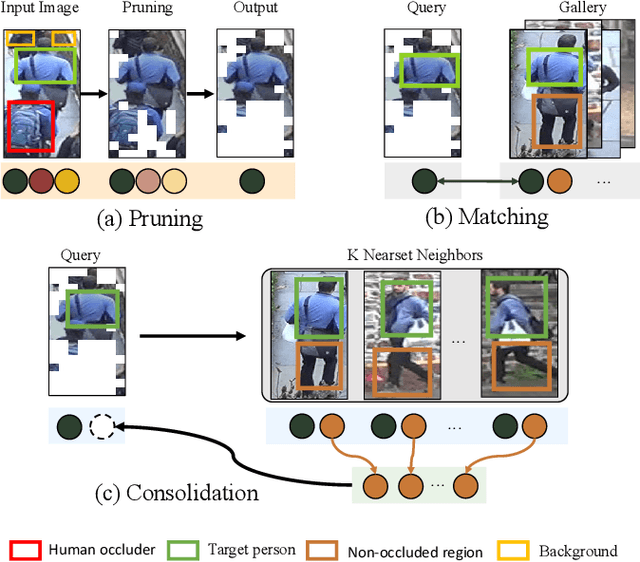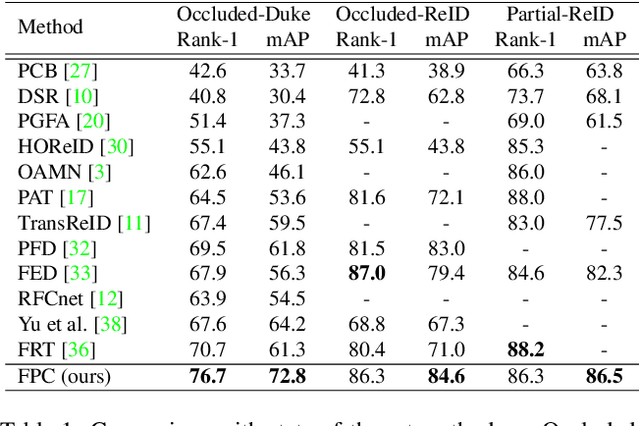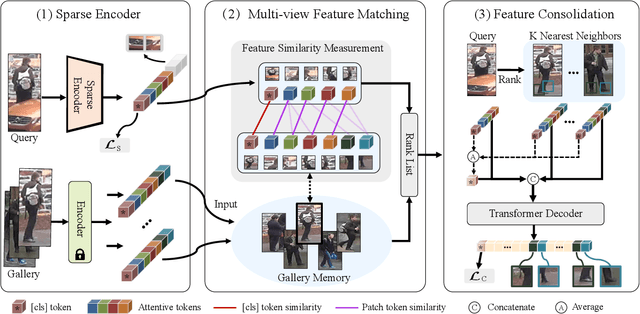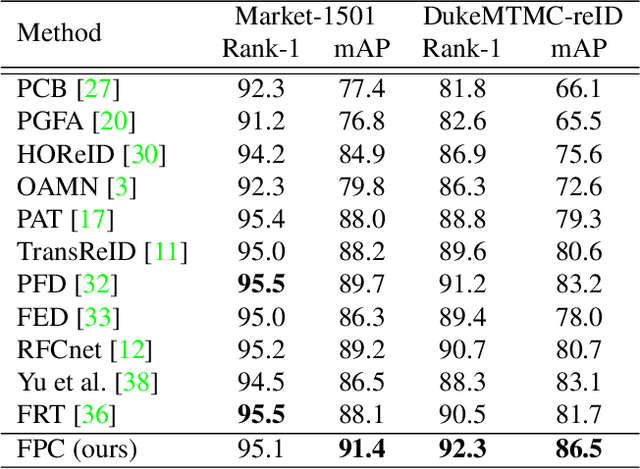Dynamic Feature Pruning and Consolidation for Occluded Person Re-Identification
Paper and Code
Nov 27, 2022



Occluded person re-identification (ReID) is a challenging problem due to contamination from occluders, and existing approaches address the issue with prior knowledge cues, eg human body key points, semantic segmentations and etc, which easily fails in the presents of heavy occlusion and other humans as occluders. In this paper, we propose a feature pruning and consolidation (FPC) framework to circumvent explicit human structure parse, which mainly consists of a sparse encoder, a global and local feature ranking module, and a feature consolidation decoder. Specifically, the sparse encoder drops less important image tokens (mostly related to background noise and occluders) solely according to correlation within the class token attention instead of relying on prior human shape information. Subsequently, the ranking stage relies on the preserved tokens produced by the sparse encoder to identify k-nearest neighbors from a pre-trained gallery memory by measuring the image and patch-level combined similarity. Finally, we use the feature consolidation module to compensate pruned features using identified neighbors for recovering essential information while disregarding disturbance from noise and occlusion. Experimental results demonstrate the effectiveness of our proposed framework on occluded, partial and holistic Re-ID datasets. In particular, our method outperforms state-of-the-art results by at least 8.6% mAP and 6.0% Rank-1 accuracy on the challenging Occluded-Duke dataset.
 Add to Chrome
Add to Chrome Add to Firefox
Add to Firefox Add to Edge
Add to Edge